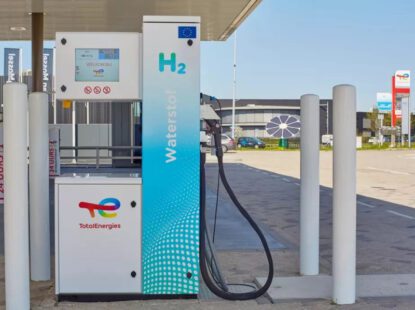
Conference hears ‘US is behind… but not for long’ on e-mobility
An e-mobility expert has warned that Europe risks being overtaken by the US in the global market for deployment of electric vehicles.
“We need to do something before it is too late,” said Julia Poliscanova, senior director for electric vehicles at European NGO, Transport & Environment.
Currently, China leads the worldwide EV market and Europe is second. A report released this week by EY and electricity association Eurelectric highlights that the European electric vehicle market is booming and predicts there will be more than 75 million EVs on Europe’s roads by 2030.
And yet the US is in Europe’s rear-view mirror and catching up fast, fuelled mainly by the implementation of the Inflation Reduction Act, the Biden administration’s investment-stimulating legislation introduced in 2022.
“Technically, the US is behind,” said Poliscanova. “But with the IRA, they are catching up super-quickly.”
Her warning was echoed by Marc Coltelli, EY’s Americas e-mobility energy leader, who said the White House had “taken strong steps to stimulate the e-mobility eco-system”.
“The US is behind… but it’s not going to be behind for long. The chance to grow over the next decade is huge.”
He predicted that the US would match Europe’s current levels of EV adoption in just three years because there was already free-flowing collaboration between utilities, carmakers, chargepoint providers and other actors in the EV supply chain. “The excitement around EVs is huge.”
Poliscanova and Coltelli were taking part in a panel discussion this week at EVision, a Brussels-based e-mobility symposium organised by Eurelectric.
More from EVision
EV uptake is ‘critical litmus test’ for Europe’s energy transition
Data interoperability key to advance e-mobility finds Eurelectric
Joining them on stage was Mark Nicklas, Head of Unit at DG GROW in the European Commission, who stressed that being number two globally was a success story.
And he was confident Europe could hold that position: “We have all the enabling framework in place: the next step is implementation.”
He said the US “has a simple framework, while Europe is much more complicated”. However, he said that when EU policies were added up, they were “not so much different from the IRA”.
Poliscanova disagreed. She said Europe’s policies were too mixed and lacked the pulling power to attract investment.

She called for a green industrial policy, a European investment strategy and a made-in-EU approach to “bridge the gap between producing [EVs] in Europe and producing somewhere else”.
She said Europe had a “lot of strong ingredients, but we need a stronger cook”.
And she urged policymakers and industry to “be more bullish. We should just ‘do’ and not question whether to ‘do’. The future of decarbonisation is the intersection between energy and transport, and we need much smarter legislation.”
She was full of admiration for Europe’s EV journey so far – “Every fifth vehicle sold in Europe is electric” – yet she warned, “we are with EVs and batteries where we were with solar”.
A avoid a similar scenario, she said: “We need a different vision for trade – a holistic vision.”
Originally published by powerengineeringint.com




